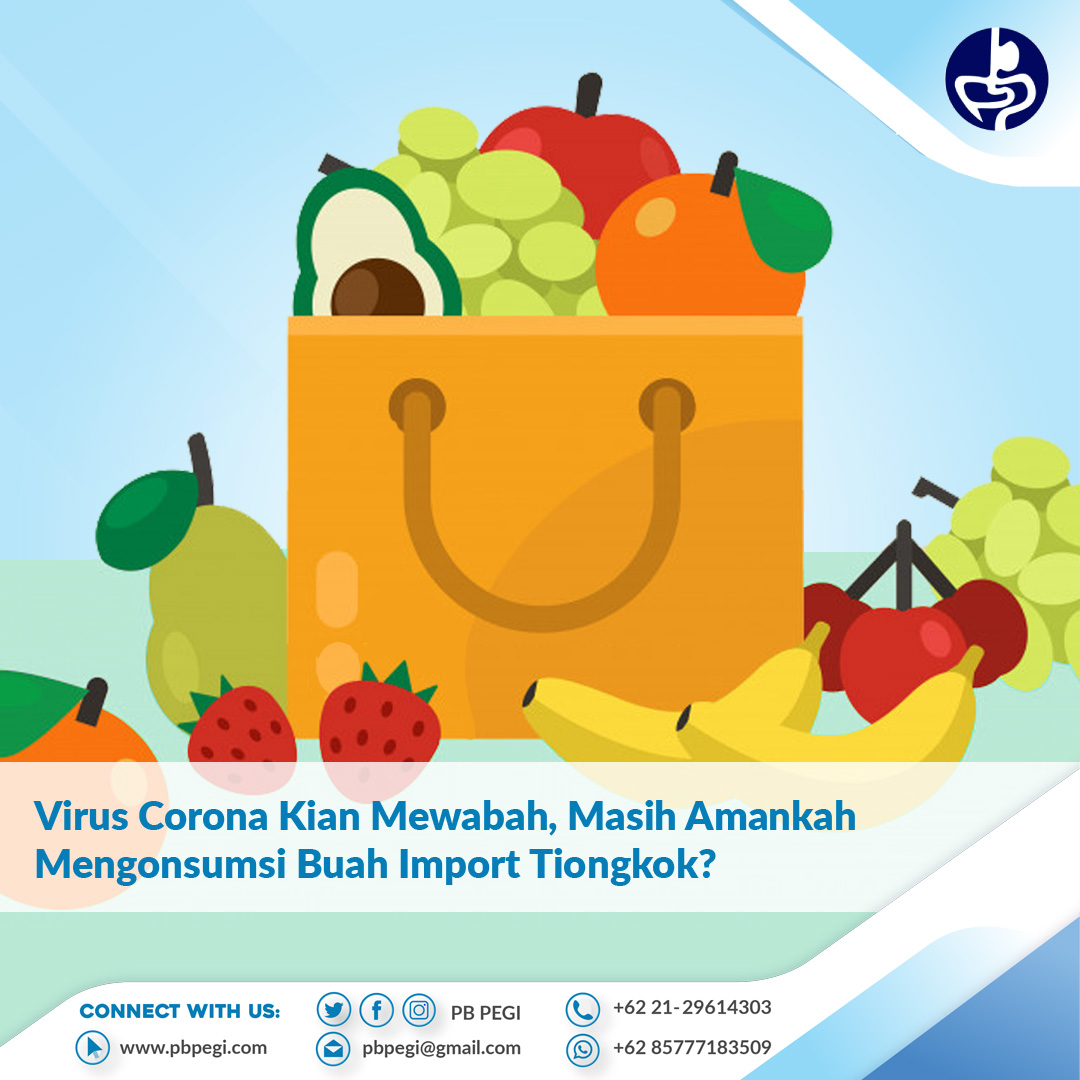
Corona Virus Plague, Is It Still Safe to Eat Chinese Imported Fruits?

Recently the world was shocked by the emergence of a new type of corona virus that was first discovered in Wuhan, China named 2019-nCoV. As of February 18, 43,103 cases and 1018 deaths have been reported due to Coronavirus Disease (COVID19). The disease, which in most cases has clinical symptoms of fever, difficulty breathing, and X-rays that show extensive infiltrate pneumonia in both lungs, has spread to 13 countries, namely China, Singapore, Japan, Republic of Korea, Malaysia, Vietnam, Thailand, America United States, Germany, France, UK, Spain and United Arab Emirates.
Even though Indonesia is not yet one of the countries that has experienced local transmission of the virus, the wider spread of the disease is starting to cause concern in the community. Some people are worried about contracting the virus through droplets (splashes of saliva) when sneezing or coughing. Some are even worried about contracting the virus through consumption of imported fruits from China, such as mandarin oranges, pears, apples, grapes, to lemons. Is this assumption true?
Dean of the Faculty of Medicine, University of Indonesia, Prof. Dr. dr. Ari Fahrial Syam, MMB, SpPD, K-GEH, FACP, FACG, FINASIM explained that the corona virus can be transmitted from human to human if droplets or saliva splashes of patients who cough or sneeze directly inhaled, ingested, or exposed to the retina of the person in nearby. In the droplet there are a lot of viruses. Therefore, in order not to be infected we must avoid direct contact with patient droplets. He also added that actually, when in the open air, the virus will die within 10-15 minutes. So even though there are sufferers who spur droplets through sneezing or coughing, then exposed to any fruits or objects imported into Indonesia, in just 10-15 minutes the virus will die. So that people do not have to worry about contracting the virus because they eat fruit imported from China.
The thing to watch out for is when we are in public places such as trains, buses, or places where people are crowded. To prevent transmission when in these places, we must always wear a mask in a crowded place, wash hands frequently, and make sure before wiping our nose or rubbing our eyes, we have washed our hands with soap first. We could just hold the door handle and the door handle just had a patient who sneezed. If it hasn’t been 5 minutes yet, the virus from the sneezing droplet is still alive and we can get it.
Healthy Greetings.
Source:
https://investor.id/lifestyle/ini-penjelasan-dokter-soal-aman-tidaknya-konsumsi-buah-import-tiongkok-terkait-virus-corona
http://infeksiemerging.kemkes.go.id/situasi-infeksi-emerging/info-corona-virus/situasi-terkini-perkembangan-novel-coronavirus-2019-ncov-12-februari-2020/#.XkUL3_kzYdW
P2P Kemenkes RI. 2019. Pedoman Kesiapsiagaan Menghadapi Infeksi Novel Coronavirus (2019-nCoV). Jakarta. Kementerian Kesehatan RI Direktorat Jenderal Pencegaham dan Pengendalian Penyakit.
Illustration: freepik.com






 Users Today : 579
Users Today : 579 Total views : 2234058
Total views : 2234058 Who's Online : 3
Who's Online : 3